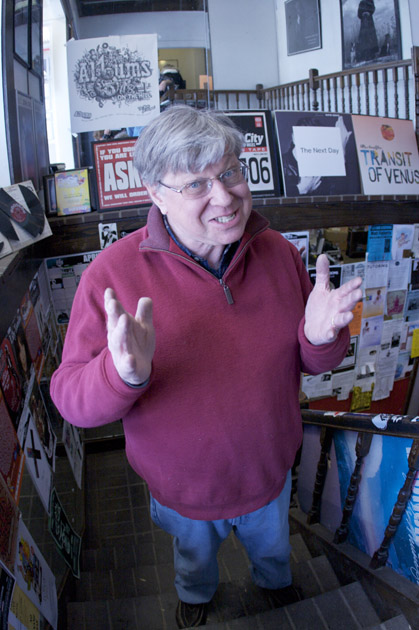
Though the market for purchasing and listening to music has largely moved online, hardcore music fans still dedicated to physical records have resisted the move, fetishing the act of collecting vinyl. What used to be a common act of commerce has now turned into a subculture, and like all cultures, it even has its own holiday: Record Store Day, celebrated every year on the third Saturday of April.
Record Store Day began in 2008 when a coalition of independent record store owners wanted to do something similar to what comic book companies were doing with Free Comic Book Day, a promotional event that started in the early 2000s. Similar to Free Comic Book Day, Record Store Day brings together owners, the artists and customers to appreciate and celebrate the unique aspect of the record industry with a variety of performances and special limited-edition releases.
Though only a handful of stores participated in 2008, Record Store Day is now celebrated by thousands of stores worldwide. Locally, Albums on the Hill, Bart’s Music Shack and Absolute Vinyl Records and Stereo in Boulder are all gearing up for the event, which can require months of planning for the live music and giveaways.
According to Greg Mudd from Bart’s Record Shop, this year’s event will be the biggest yet, with over 400 special releases, a massive increase from the 10 albums that were put out for the inaugural event.
Record Store Day isn’t for the few hanging onto the days when records were alive, it attracts a wide ranged audience that is passionate about music. Because of all the hoopla, Record Store Day is often the biggest day of the year for record stores across the country. How busy is it? Last year in Denver people camped out the night before to be the first ones into Twist & Shout.
“It gives people a chance to represent their favorite hobby, something that isn’t as popular in today’s society,” says Paul Epstien from Twist & Shout.
Further proof of Record Store Day’s wide appeal is the variety of records released at this year’s event.
Past years have seen wildly esoteric releases like collaborations between Jack White and Insane Clown Posse, or a split 7-inch of art-pop icon Feist and metal gods Mastodon covering one another, but this includes new records from Neil Young, The Grateful Dead and Pretty Lights.
A limited-edition vinyl release of bands that have performed live in the KBCO studio is also on the list this year. One of the few places it will be available is Albums on the Hill.
Proceeds from sales of that record will benefit the Food Bank of the Rockies. The record is split 7-inch, one side has “Lightning Bolt” the single by Jake Bugg, and the other side has “Best Day of my Life” by American Authors.
Christopher Haynes, another employee at Albums on the Hill, says that human interaction at a record stores is what is keeping them alive.
“There’s nothing that can replace a human being thinking through how to make the connections between what kind of stuff you’re interested in, the kind of stuff you listen to and what kind of stuff you might like,” he says. “There’s no computer algorithm that can replace that kind of conversation.”
Walking through Albums on the Hill, it’s easy to understand what Haynes sees in it it.
The organized chaos of recent releases mixed in with the old records in the back, learning how to operate a turntable — and actually reading the cover of a CD — aren’t the kind of tactile experiences available online, but they’re common in a record store.
Browsing through hundreds of CDs while overhearing the employee greet everyone who walks through the door is a completely different experience than researching music online.
Even if the listening experience is comparable, there’s an added layer that is lost online.
“Whether you pirate it from a bittorrent site, or if you buy it at a record store, you’re still listening to the same thing,” says Haynes. “But pirating doesn’t recognize the value that is inherent in a piece of recorded music. It assumes that that piece of recorded music is valueless and so can be traded and bartered for free with no transfer of value.
“The listening experience is basically the same, but the people who come into record stores, I think, understand that there is a chain of value involved in the production of music.”
That added layer is something Andrew Schneidkraut, the owner of Albums on the Hill, experiences routinely.
“For someone like me, every day is record store day,” he says. “It’s important to embrace the community that record stores, book stores, independent stores of nearly any sort, restaurants, coffee shops, diners that are independent.
“They give something to the community that’s different than a chain store. They’re really committed to their community.”
Listening to a record takes time and commitment, which is why being a part of this specific community differs from most people’s music habits.
“For some people, music is an amuse bouche, a single bite sized hors d’oeuvre,” says Schneidkraut. “But for some people, music is in their life the main the course, the entrée, the thing they really want. … Music can serve as an amuse bouche, but for it to really enrich you, you’ve got to have more than just a taste.”
And Record Store Day is less a taste than it is a Vegas buffet.
Respond: [email protected]














